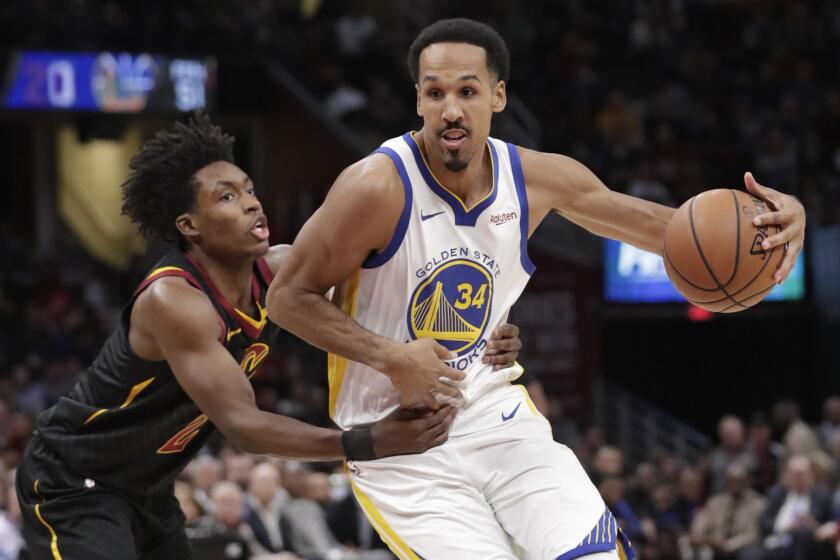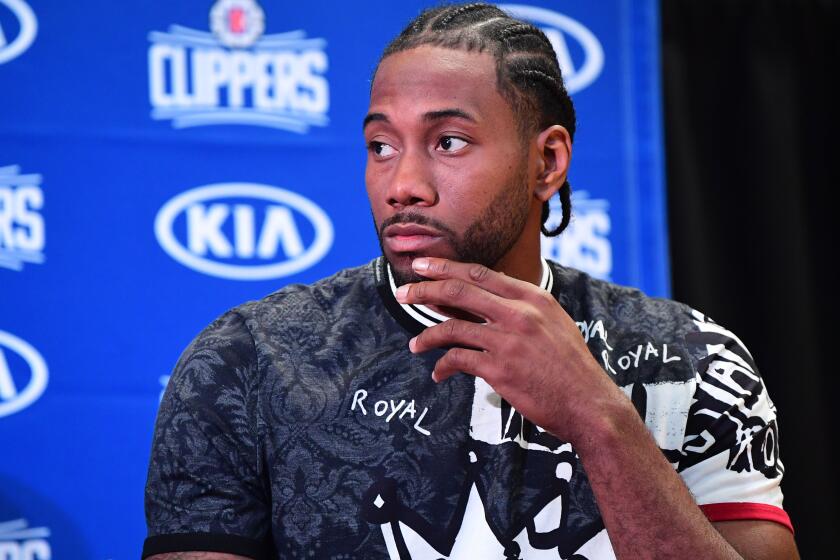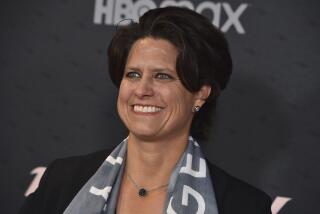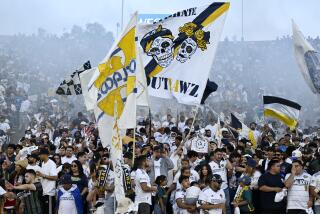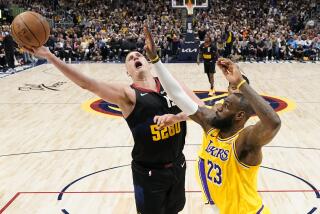NBA board increases maximum fine for tampering to $10 million
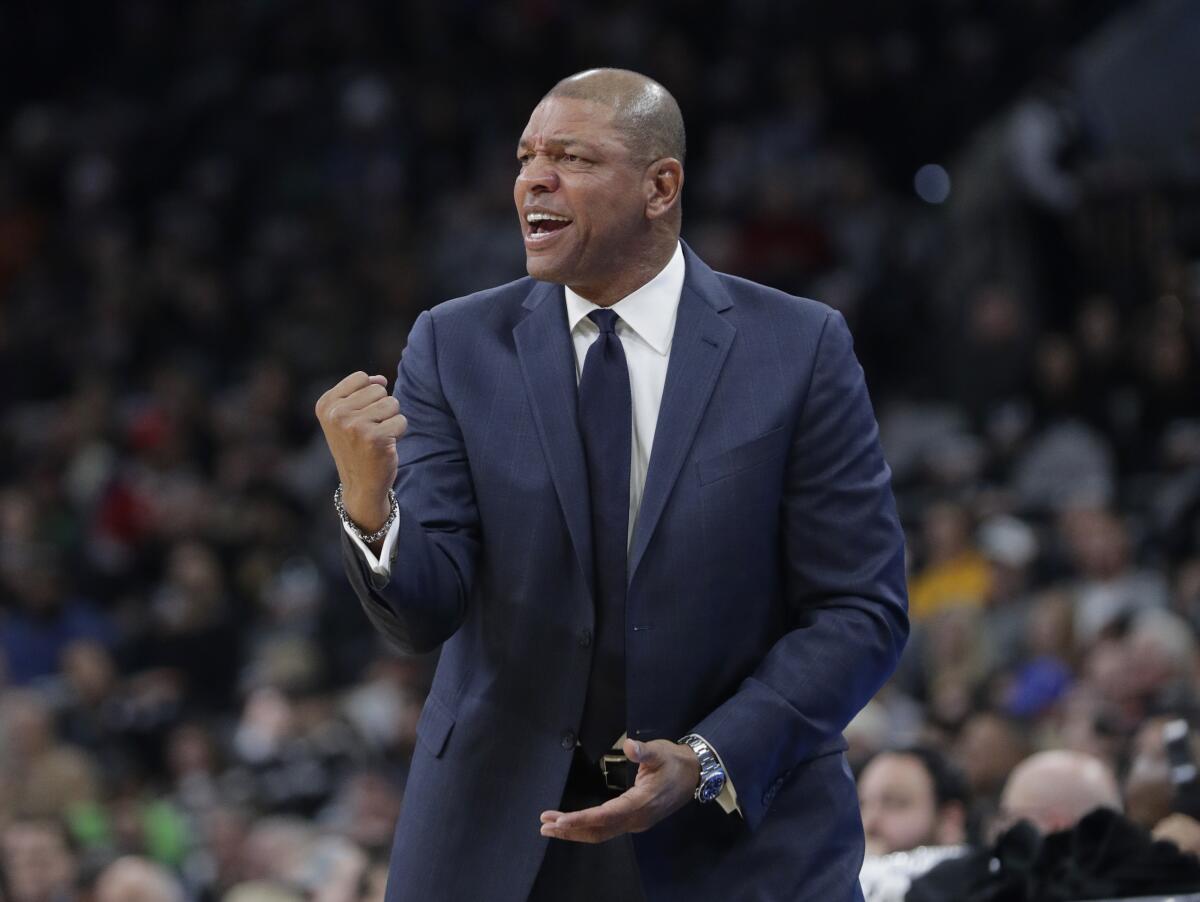
- Share via
It wasn’t a televised wink, an improper communication with an agent, a plan to get around the salary cap or a comment about a highly coveted superstar that pushed the NBA to act.
But all those things Los Angeles’ pro basketball teams have done in the last four years — combined with a farcical free-agent period this past summer — prompted the league to try to combat something most people consider largely unenforceable: tampering.
The NBA’s Board of Governors on Friday unanimously increased the maximum fine for tampering to $10 million. Violations can also result in the suspension of executives, forfeitures of draft picks and the voiding of contracts. Teams will have their communications randomly audited and executives could have their communication devices confiscated as part of investigations.
“There was a strong view, I think, of every single person in the room that we need to ensure that we’re creating a culture of compliance in this league and that our teams want to know that they’re competing on a level playing field,” NBA Commissioner Adam Silver said, “and frankly, [teams] don’t want to feel disadvantaged if they are adhering to our existing rules.”
In a time where no one can seemingly agree upon anything, everyone in and around the NBA is happy that Shaun Livingston retired on his terms.
The extent to which teams were following the rules is debatable. Some NBA executives have equated tampering to speeding — who sticks to the posted speed limits? But without consistent enforcement of the tampering rules on the NBA books — ones that severely limit how executives can speak about players under contract with different teams — the water has been murky.
In 2014, the NBA fined the Clippers $250,000 for discussing a possible endorsement deal during contract talks with DeAndre Jordan. The Lakers, who weren’t fined when Magic Johnson, appearing on “Jimmy Kimmel Live!,” gave an exaggerated wink when talking about then-Pacer Paul George, did get popped for $500,000 for improper communications between general manager Rob Pelinka and George’s agent.
And Johnson and Clippers coach Doc Rivers both were fined $50,000 for talking about players on other teams — Johnson for answering a question about the similarities between himself and Bucks star Giannis Antetokounmpo and Rivers for comparing Leonard to Michael Jordan during a TV show aired by one of the NBA’s broadcast partners.
Alone, none of these incidents were egregious enough to act. But when things got silly during the offseason, the NBA’s governors had to act. Thirty minutes before teams were allowed to speak to free agents June 30, more than $1.3 billion in deals were reportedly agreed upon — revealing a blatant disregard for the rules.
“The ultimate goal here is to ensure compliance and to ensure that there’s that appropriate tension that exists at the team,” Silver said. “So there is sort of a significant threat that if a team doesn’t comply that there will be consequences.”
Enacting those consequences will still be a challenge.
Whether it’s player-to-player communication, which seems hard to regulate, or executive-to-agent discussions that can now either be had in person or through any other number of untraceable means, the NBA has its hands full when it comes to catching people breaking these rules.
The NBA’s hope is by upping the penalties — and by reminding the actors how severe the consequences can be — that NBA executives, coaches, players and player agents will all behave themselves.
It’s a big ask, but one the NBA and Silver felt they needed to make.
Clippers star Kawhi Leonard is among the many top players who chose not to play for Team USA, which exited the FIBA World Cup on Wednesday without a medal.
“I think the things we did today were areas where we already have rules on the books,” Silver said. “And essentially the league was coming in at the direction of our teams and saying, and ‘I’ll accept responsibility. You need to do a better job enforcing the rules that are already on your books and do a better job ensuring that there is a culture around the league where people believe there are absolute consequences if you don’t play by the rules.’”
NBA takes steps to update traveling rules
The “gather” step — a move popularized by players like James Harden — has often been viewed as a travel, but instead of banning the move, the NBA updated the language in its rule book to try to better define it.
“One of the most misunderstood rules in our game is how traveling is interpreted and appropriately called,” said Byron Spruell, NBA president of league operations. “Revising the language of certain areas of the rule is part of our three-pronged approach to address the uncertainty around traveling. This approach also includes an enforcement plan to make traveling a point of emphasis for our officiating staff, along with an aggressive education plan to increase understanding of the rule by players, coaches, media and fans.”
The NBA will also now require teams to submit their starting lineups 30 minutes before game time in order to increase transparency. The old rule required teams to submit their starters 10 minutes before the tip.
More to Read
Go beyond the scoreboard
Get the latest on L.A.'s teams in the daily Sports Report newsletter.
You may occasionally receive promotional content from the Los Angeles Times.

